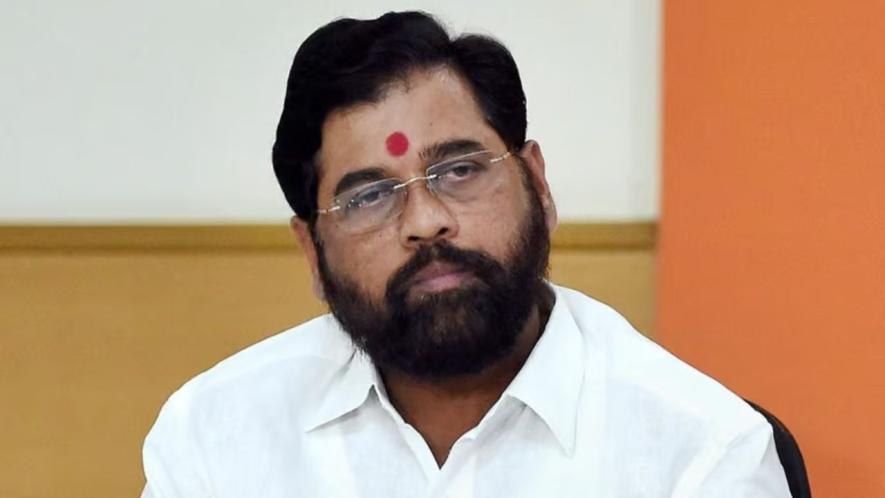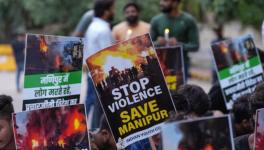Goodbye Welfare State? Welcome ‘Labharthis’

Image Courtesy: PTI
Times have definitely changed.
There was a time earlier when a postcard sent by an ordinary citizen had spurred the judiciary into action, not any more.
One does not know whether the legal notice sent by a conscientious journalist to the Maharashtra government will similarly have any impact or not.
The focus of this legal notice is on the recent scheme launched by the Maharashtra government, called Ladki Bahin, under which women will be given Rs 1,500 per month. Launched on the eve of the elections to the state, the notice raises issues of the scheme’s timing, the claim that Rs 1,500 given to women would be sufficient; how such doles create a dependency culture and how it effectively punctures the whole idea of a welfare state.
Perhaps, the regime would maintain opacity much on the lines of earlier occasions when it had refused to give satisfactory answers, as to why projects meant for Maharashtra were suddenly shifted to Gujarat or how a statue built and inaugurated with much fanfare collapsed in a few months.
Whatever be the state government’s response in this particular case (Ladli Bahin), it cannot be denied that it has raised very urgent questions that cannot be left unanswered.
The legal notice also underlines that while the scheme is projected to cost the government Rs 46,000 crore per month, the government has already taken a loan of Rs 3,000 crore from the Reserve Bank of India for its implementation and this initiative will further strain state finances. As a result, instead Maharashtra’ projected fiscal deficit of 3% will rise to 4.6% because of this scheme's rollout.
Apart from monetary and other considerations, the legal notice has questioned the exclusion of transgender women from the scheme. More importantly, it also underlined that this scheme, which perceives the relationship between the government and women as a brother-sister dynamic, overturns the wisdom of the makers of Constitution who had envisaged this relationship as one of State and citizen.
An expected response can be that there is nothing new about such schemes. True, with the ascent of the Narendra Modi-led dispensation at the Centre, the launching of such schemes (prior to elections) have become the order of the day.
Like in neighbouring Madhya Pradesh, whose Ladli Behna scheme supposedly clicked the elections in the ruling dispensation's favour, one also has the scheme launched by the Central government, where 80 crore Indians will be given 5 kg free foodgrains for the next five years.
The prevalence of such schemes -- a few of them even launched by Opposition governments -- does not mean that one should stop raising valid questions around them.
This particular case, which was launched immediately after the drubbing the Bharatiya Janata Party (BJP)-led dispensation received in Maharashtra, carries extra relevance because of related urgent considerations.
The sudden announcement of this scheme, without any long-term planning, also means a severe impact on the payment of subsidies to other marginalised or needy sections that is already in motion. Nitin Gadkari, a senior BJP leader, who holds a cabinet minister’s rank at the Centre, himself underlined this in a recent public meeting. Explaining the tight financial situation of Maharashtra, with it already in debt, he questioned the viability of this scheme.
For laypersons, this effectively means the state government has embarked upon a popular looking scheme, which essentially throws few crumbs before women, to 'impress them and win elections'. and simultaneously has found out a way to 'starve or deprive other needy sections of society' that are already in receipt of such subsidy.
A look at these developments makes it clear that Maharashtra has denied actual participation of citizens in decision-making related to them. Second, the hurried manner in which the scheme has been launched amounts to the state ''infantilising' its citizens. It has also created divisions and a feeling of suspicion among them.
This is slowly but not so silently breaking the compact between a Democracy and its Citizens -- where it is incumbent upon a citizen to demand rights/amenities and it is the duty of the State is to fulfill it, where citizens have the right to freedom of expression or even the right to be consulted on decisions being taken bout them.
Perhaps in the eyes, or rather vision, of the ‘powers that be’, the days of such compact between a democracy and its citizens are long over and they yearn for the days when people were treated as ‘subjects’ who were at the mercy of monarchs, kings or feudal lords.
The crude insistence on the display of the Prime Minister’s photographs on such largesse or the manner in which the Union Finance Minister reprimanded a public distribution system shop owner for not displaying PM Modi’s photograph, or PM himself glorifying how people perceive such help, just exposes their worldview.
It, thus, does not appear surprising that the then leaders of Rashtriya Swayamsevak Sangh (RSS) or the Hindutva fraternity - with whom Modi and all his colleagues at the Centre and various states still owe allegiance -- opposed the making of a Constitution that is based on the promise of ‘one man, one vote’ and pushed for making Manusmriti as Independent India's new Constitution.
What we observe today is that despite being a rights’ bearing individual, an ordinary citizen is effectively being left at the mercy of the State. This is basically the introduction of a new relationship where the old relationship is de facto (not de jure) being substituted with an entirely weird framework, wherein s/he is merely a labharthi (beneficiary), not a citizen, but a mere subject.
What is worth emphasising is that analysts had envisaged the emergence of such a situation with the ascent of the Modi-led government. In his very first public speech, Prime Minister Modi had pompously declared that his government would usher in 'good governance ' or what he termed as 'Minimum Government, Maximum Governance'. An idea which had come under a lot of scrutiny.
Unpacking the idea of 'good governance', analysts had elaborated how this meant an attack on 'welfare expenditure' and how it was 'a bad idea economically'. The critique also entailed the role of 'unelected experts' instead of 'political intervention' in policy-making.
While ideas of accountability, transparency, empowerment or even citizen participation were packaged with this ''good governance agenda” of the Modi government, these were pushed not in the ''context of social transformation' but basically as 'part and parcel of neoliberal vision of good governance'.
The whole idea of empowerment has a different connotation in the older framework. Now it meant giving power to the marginalised through 'technology or e-governance' and has become a 'cruel joke' on the original meaning of the term. In the article, the author (G Sampath) had famously said good governance entails “substitution of politics - which is what democracy is all about -- with “management” and “citizenship without rights”.
Of late, scholars and analysts have written about how such schemes are basically converting a rights-bearing citizen to a ‘subject’, a ‘labharthi’ or how "..This 'techno-patrimonialism' is not based on the poor exercising their rights; it is built instead around a direct connect with a personality-centric leadership, and "[w]elfarism, one that strips itself of any emancipatory goals such as advancing social citizenship and building solidarity. Instead, it casts citizens as passive recipients (labharthis) of State largesse rather than active claim-making, rights-bearing actors.
To be frank, there is need to further dissect this techno-patrimonial welfarism, which has effectively de-politicised the distributional struggle or how it has impacted democracy when we have voters, not as rights-bearing individuals but as labharthis, and how this shapes democratic accountability.
The writer is a veteran independent journalist. The views are personal.
Get the latest reports & analysis with people's perspective on Protests, movements & deep analytical videos, discussions of the current affairs in your Telegram app. Subscribe to NewsClick's Telegram channel & get Real-Time updates on stories, as they get published on our website.
























